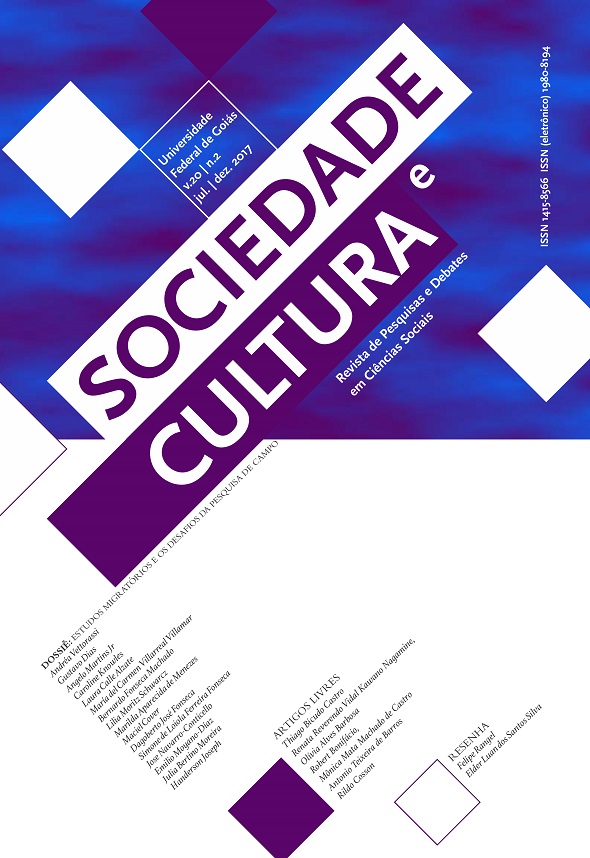Diáspora, refugiado, migrante: perspectiva etnográfica em mobilidade e transfronteiriça
DOI:
https://doi.org/10.5216/sec.v20i2.53071Abstract
Este artigo propõe uma discussão sobre a maneira pela qual
as categorias diáspora, migrante e refugiado são, mutuamente, constituídas no mundo social haitiano, a partir da experiência etnográfica em mobilidade e múltiplos engajamentos do pesquisador em campo. Pergunta-se então: quais são os sentidos sociais e pragmáticos atribuídos pelos haitianos às categorias de diáspora, refugiado e migrante? De que modo a mobilidade se torna um conceito chave para pensar as dinâmicas do ser diáspora, refugiado e migrante no espaço (trans)nacional e (trans)fronteiriço?. O foco é o contingente de haitianos vindos ao Brasil pela fronteira entre Brasil, Colômbia e Peru, de 2010 a 2013 e os que foram para o Suriname e a Guiana Francesa neste mesmo período. A pesquisa etnográfica articula-se a partir da referida fronteira, mas desenvolve-se também em Manaus (Brasil), Caiena (Guiana Francesa), Paramaribo (Suriname) e Fonds-des-Nègres e Pemerle (Haiti).
Downloads
Downloads
Published
How to Cite
Issue
Section
License
Authors who publish in this journal agree to the following terms:
- Authors retain the copyright and grant the journal the right of first publication, the work being simultaneously licensed under the Creative Commons Attribution License, which allows the sharing of the work with acknowledgment of authorship and of the initial publication in this journal;
- Authors are authorized to enter into additional contracts separately, for non-exclusive distribution of the version of the work published in this journal (eg, publishing in an institutional repository or as a book chapter), with acknowledgment of authorship and of the initial publication in this journal;
- Authors are allowed and encouraged to post and distribute their work online (eg, in institutional repositories or on their personal page) at any point before or during the editorial process, as this can bring productive change as well as increases the impact and the citation of the published work (see O Efeito do Acesso Livre).



